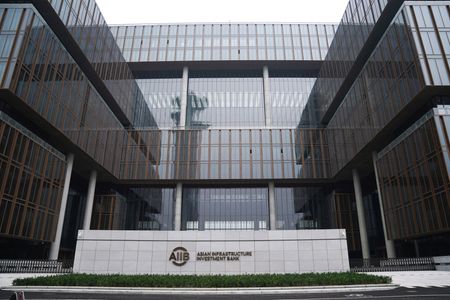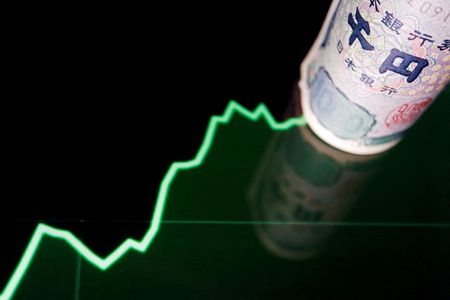By Kaori Kaneko and Tetsushi Kajimoto
TOKYO (Reuters) -Japan will likely spend $170 billion in a scheduled fresh stimulus package to cushion the economic blow from rising raw material costs, Kyodo news agency reported, a move that would add to the country’s already huge debt pile.
The massive spending, which is likely to be finalised on Friday, will put Japan on the spotlight after Britain’s former prime minister Liz Truss roiled markets by unveiling an economic programme that cost her job.
The total size of Japan’s upcoming package, which will include state outlays of 25.1 trillion yen ($170 billion), will be around 67.1 trillion yen when including municipal government expenditures and corporate spending, Kyodo reported on Wednesday without citing sources.
The Ministry of Finance’s budget bureau was not immediately available to comment.
Analysts expect a portion of the package to be funded by additional debt issuance that would increase Japan’s already huge public debt which, at twice the size of its economy, is the biggest among major economies.
They said the timing of the package, after Truss’s fiscal plans jolted investors, could make markets particularly sensitive to any big spending plans.
“It’s a bit worrying how markets could react to Japan’s fiscal stimulus after what happened in Britain,” said Yoshimasa Maruyama, chief market economist at SMBC Nikko Securities.
“If the size of spending is around 20 trillion yen, Japan probably doesn’t have to issue additional debt. But if it’s 25 trillion yen, it might have to do so,” he said.
Under the package, the government will extend a gasoline subsidy to curb rising energy costs for households and businesses until the first half of the next fiscal year, a draft document seen by Reuters showed on Wednesday.
The government will also include support for alleviating rising electricity bills, which will be implemented as early as next January, according to the draft.
While far more modest than other major economies, Japan’s core consumer inflation hit an eight-year high of 3% in September, exceeding the central bank’s 2% target for six straight months.
With his approval ratings plunging, Prime Minister Fumio Kishida has been under pressure to take steps to ease the pain on households and retailers from rising fuel and food prices.
Earlier this week, the ruling party’s secretary general Toshimitsu Motegi hinted that a planned economic spending package will total around 26 trillion yen.
The Bank of Japan is set to keep interest rates ultra-low at a two-day policy meeting ending on Friday, a move that will support the economy but may continue to inflate import costs by pushing down the yen.
While the BOJ’s ultra-loose monetary policy has kept interest rates near zero, super-long bond yields have crept up to multi-year highs as markets test the central bank’s resolve to cap bond yields.
($1 = 148.1700 yen)
(Reporting by Kaori Kaneko and Tetsushi Kajimoto; Additional reporting by Takaya Yamaguchi and Kantaro Komiya; Writing by Leika Kihara; Editing by David Dolan, Krishna Chandra Eluri, Louise Heavens and Ana Nicolaci da Costa)










